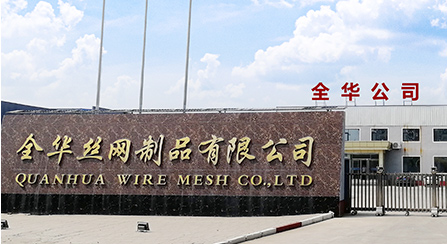Aug . 05, 2024 17:09 Back to list
Suppliers of Sustainable Gabion Walls for Slopes and Erosion Control Solutions
Gabion Walls on Slopes A Sustainable Solution for Erosion Control
In recent years, the need for effective erosion control and landscape stabilization has intensified due to environmental changes and increasing human activity. One of the most effective and sustainable methods to address these issues is the use of gabion walls, especially on slopes. A gabion wall consists of wire mesh baskets filled with stones or other materials, providing a versatile and eco-friendly solution for managing erosion and enhancing the aesthetic appeal of landscapes.
What Are Gabion Walls?
Gabion walls are constructed using cylindrical or rectangular wire mesh cages that are filled with natural stones or rubble. The design is not only functional but also adaptable to various terrains, making gabion walls particularly useful on slopes. The porous nature of the stone-filled cages allows for water drainage, reducing the risk of pressure build-up behind the wall and thereby preventing potential failures.
Benefits of Gabion Walls on Slopes
1. Erosion Control One of the primary functions of gabion walls is to control soil erosion on slopes. By anchoring the soil and reducing the flow of surface water, gabion structures prevent the gradual wearing away of the land and help maintain the integrity of the landscape.
2. Cost-Effectiveness Compared to traditional retaining wall systems, gabion walls are often more cost-effective. The materials are relatively inexpensive, and the installation process requires less heavy machinery, which can save on labor and equipment costs.
3. Aesthetic Value Besides their functional benefits, gabion walls can enhance the visual appeal of a landscape. With a variety of stone types and colors available, these walls can blend seamlessly into their surroundings, providing an attractive feature on residential, commercial, or public properties.
gabion wall on slope supplier

4. Environmental Sustainability Gabions are made from natural or recycled materials, making them an environmentally friendly option for construction. They promote biodiversity by creating habitats for various species, while their porous design allows for vegetation to grow through the structure, further stabilizing the slope.
5. Flexibility and Durability Gabion walls are adaptable to different slopes and conditions. They can withstand substantial forces from water runoff and soil movement. Moreover, their flexible construction allows them to adapt to ground movements without cracking or breaking, which is a common issue with traditional concrete walls.
Finding a Reliable Supplier
When considering the installation of gabion walls on slopes, it is essential to choose a reputable supplier. A reliable supplier will not only provide high-quality materials but also offer expert guidance on design and installation. It is important to look for suppliers who have experience in dealing with slope stabilization projects and can provide references or case studies of past work.
The supplier should also be knowledgeable about local environmental regulations and best practices for construction. This ensures that the installation will not only meet aesthetic and functional needs but also comply with environmental standards.
Conclusion
Gabion walls represent a practical and sustainable approach to managing slopes and controlling erosion. Their versatility, cost-effectiveness, and aesthetic appeal make them a popular choice for both residential and commercial applications. With the right supplier, you can effectively implement gabion walls as a solution to soil erosion issues and improve the overall stability of your landscape. As we continue to prioritize sustainability and resilience in our infrastructure development, gabion walls will undoubtedly play a key role in eco-friendly construction practices.
-
Why PVC Coated Gabion Mattress Is the Best Solution for Long-Term Erosion Control
NewsMay.23,2025
-
Gabion Wire Mesh: The Reinforced Solution for Modern Construction and Landscape Design
NewsMay.23,2025
-
Gabion Wall: The Flexible, Seismic-Resistant Solution for Modern Landscaping and Construction
NewsMay.23,2025
-
Gabion Wall Solutions: The Durable, Decorative, and Affordable Choice for Every Landscape
NewsMay.23,2025
-
Gabion Basket: The Durable and Flexible Alternative to Traditional Retaining Walls
NewsMay.23,2025
-
Gabion Basket: The Proven Solution for Slope Stability and Flood Control
NewsMay.23,2025
-
Versatility of Chain Link Fence Gabion
NewsMay.13,2025






